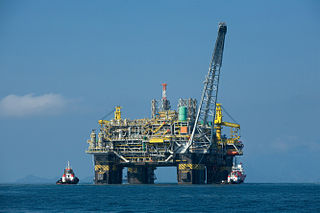 On one level the government’s enthusiasm for the economic bounty from deep sea oil is understandable; on two others it’s unacceptable.
On one level the government’s enthusiasm for the economic bounty from deep sea oil is understandable; on two others it’s unacceptable.
Any economic windfall of national significance is welcome, but so far two aspects of the hunt for this one should be rejected. Firstly the government has failed to publish any assessment of the likely environmental degradation should a spill occur – the chance of a spill is small, the impact of one potentially is major. And secondly, in its haste the government has shown contempt for public concerns – happy to limit its response to Ministerial assurance on the rigour of the spill containment strategies adopted, and ramming through some pretty dodgy legislation to prevent direct protest action out on the high seas. Its behaviour on both counts – absence of transparency and refusal address concerns – should be a warning that it hasn’t actually done the necessary homework, cannot defend its position.
A low risk event but with catastrophic consequences is very much relevant to a rigorous assessment of a project such as this. There has been a professional oil spill assessment done and published by Dumpak. The government says it also has had one done that conflicts with the Dumpak one that Greenpeace commissioned. This, despite the Environmental Protection Authority (EPA) releasing the results of shallow water oil spill modelling by Shell Todd Oil for Taranaki that confirms the Greenpeace-commissioned study used industry standard assumptions. By refusing to publish the workings of its consultants, MetOcean Solutions, the government assertions cannot and should not be believed.
The supercilious assurances from the Minister of Energy and Resources that the public need not be concerned and that the economic bounty outweighs any worries about environmental destruction, have been derisory and have served only to highlight the government’s unwillingness to be held accountable on the deep sea oil issue. There has been a trend with the Key government to push for economic windfalls from resource extraction while winding back environmental protection, and this is just the latest demonstration of that preference. The lengths the government is prepared to go to facilitate its list of extractive industry Think Bigs is evident in the special legislation Energy Minister Simon Bridges has brought in to contain the role of direct action on the seas within the 200 mile EEZ. It will be an interesting legal challenge to see whether this holds up to legal challenge under the UN Convention on the Law of the Sea – particularly if non-Zealanders are protesting.
Environmental conservation and enhancement is a concern of New Zealanders – we spend millions of dollars and devote hundreds of thousands of volunteer and paid hours each year on this work. To the extent environmental damage is needlessly inflicted by economic activity whose pollution consequences aren’t properly costed, then the so-called benefits are illusory. Earning from polluting and then spending those earnings on environmental clean-up can of course be futile, a mere transfer from one part of the economy to the other. To evaluate the net value-add of a polluting activity – and hence have a basis for deciding the taxpayer should facilitate the activity – requires that the costs of pollution be 100% internalised to the polluter. The government’s sums involve nowhere near this level of rigour.
For these reasons New Zealanders should oppose the deep sea oil adventures of the government until it provides an honest and transparent business case. The superficial cheerleading from Simon Bridges wherein the wonderful benefits only are espoused is an intellectual embarrassment, and constitutes a direct, up-your-nose insult to the intelligence of New Zealanders.

